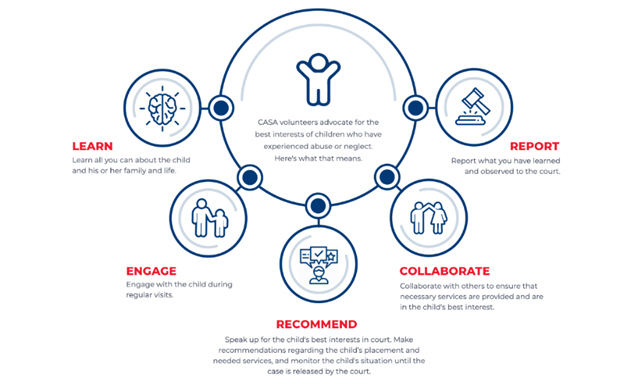During these challenging times, it is more important than ever to have an additional set of eyes on our most at-risk children. CASA advocates fulfill this need by continuing to help ensure that the children served by the Juvenile Court are safe and healthy.
-Honorable Kerry Ahern,
1st Justice of the Juvenile Court of Essex County
Serving Children in Crisis
Children who have experienced abuse or neglect face a frightening, profound unknown. Courtrooms. Foster care. New schools. A revolving door of well-meaning professionals. All while dealing with the trauma of abuse or neglect.
At Essex County CASA, we make sure these children don’t face the juvenile court and foster care systems alone.
Our highly-trained court appointed special advocate (CASA) volunteers get to know each child and are by their side, advocating for their best interests in the courtroom and the community. CASA volunteers make sure each child’s individual needs remain a priority in an overburdened child welfare system. They make sure the child is safe, has the shortest possible road to a permanent home and has the opportunity to thrive.
During a child’s time in the system, he or she might have dozens of social workers, attorneys, therapists, teachers and caregivers—but will have only one CASA volunteer. For many, their CASA volunteer is the one consistent person in their life.
CASA volunteers spend an average of 15 hours per month on their cases, through a combination of activities including visiting with the child at least monthly, connecting with the adults in the child’s life, attending important meetings concerning the child, documenting their findings, and attending court hearings. To maintain continuity in a child’s life, CASA volunteers must go in with the intention of staying involved for at least two years.
The CASA Model
CASA volunteers are appointed by judges to advocate for a child’s best interests. They stay with the child until their case is closed and they reach a safe, permanent home. Volunteers work with legal and child welfare professionals, educators and others to ensure that judges have all the information they need to make potentially life-changing decisions for each child.
Click here for enlarged view of CASA Model below…



